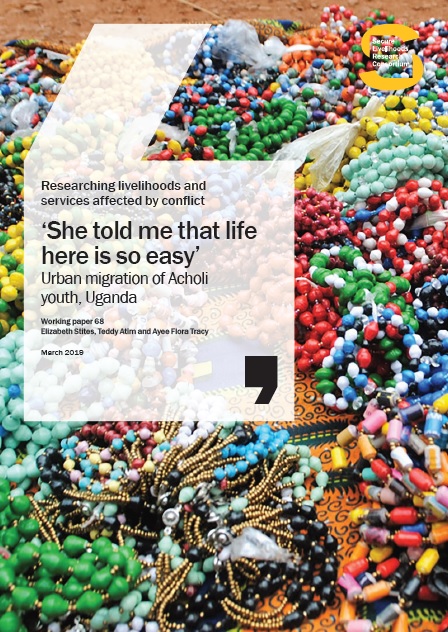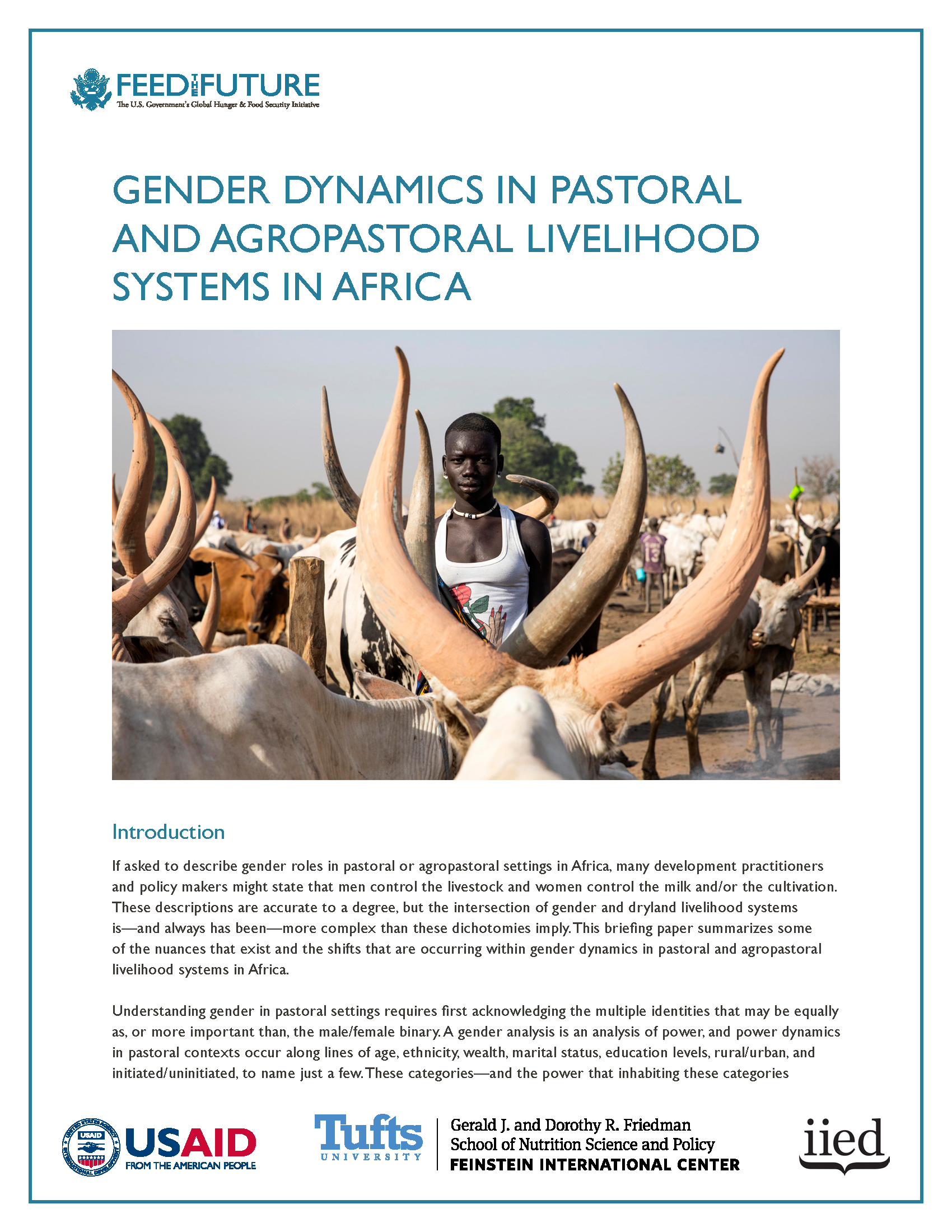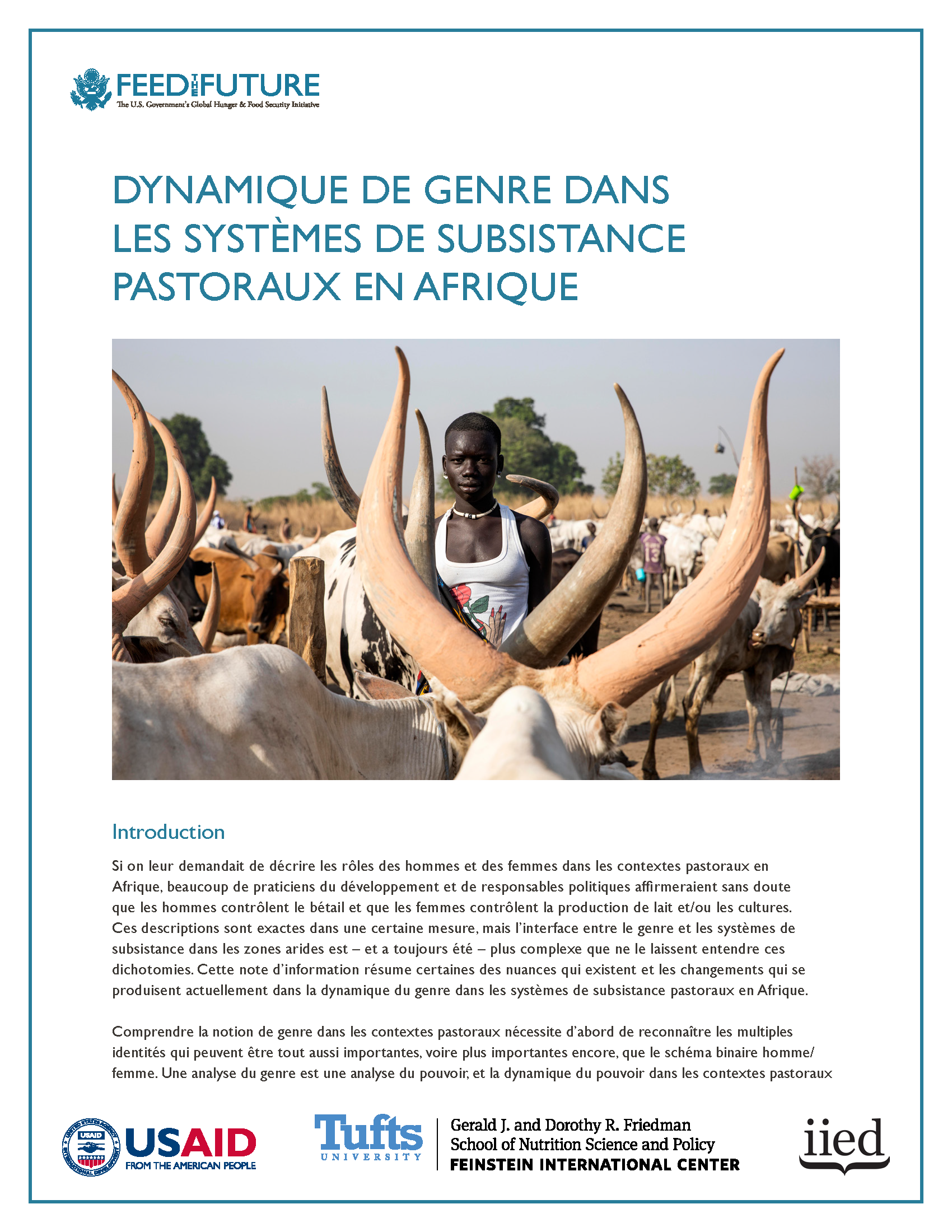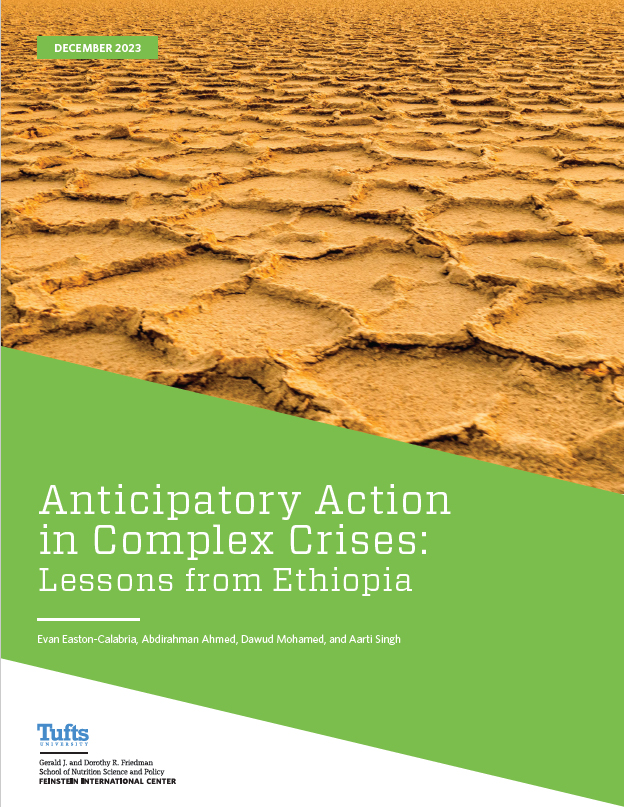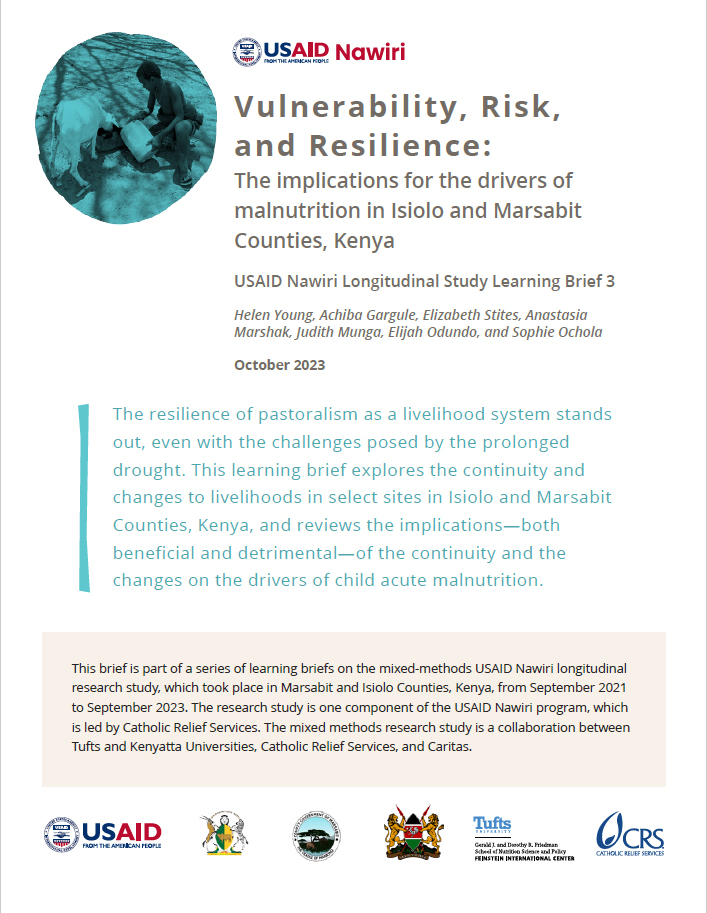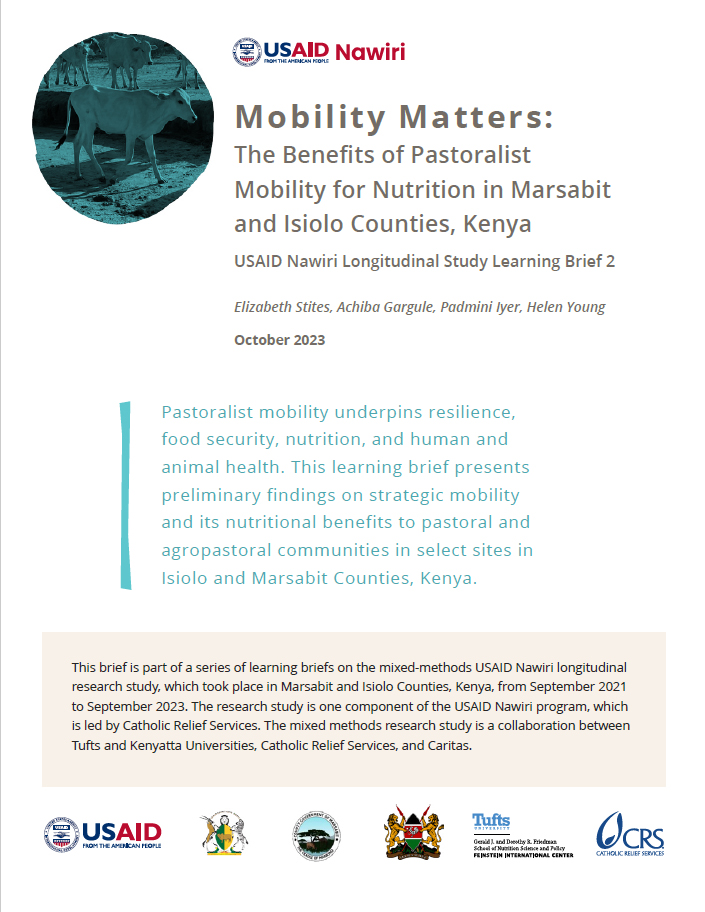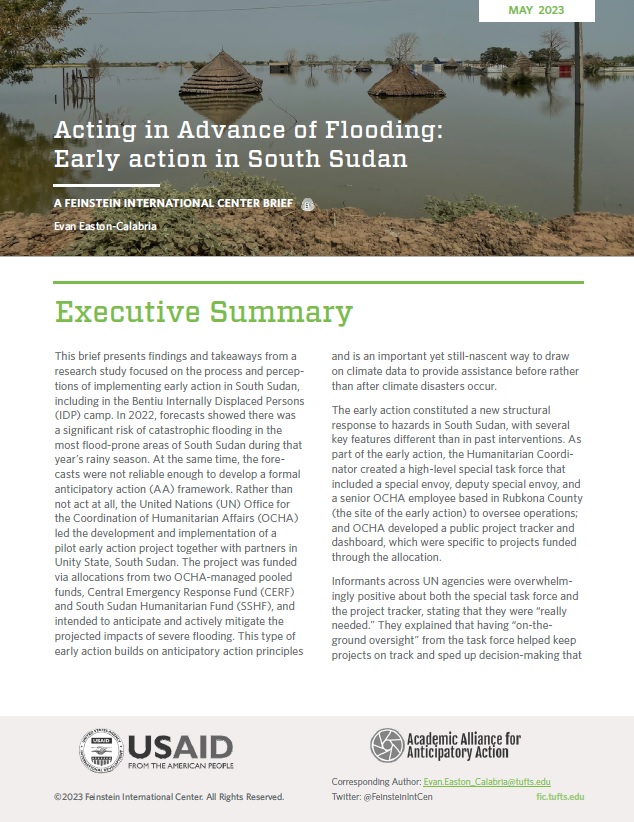This working paper presents findings on the migration of youth (aged 15–35) from Acholi, Uganda to the urban areas of Gulu and Pabbo in northern Uganda, and to the Acholi Quarter neighborhood in Kampala. Key findings include:
- Acholi youth migrate into urban areas for a diverse range of reasons; top among these are the lack of economic opportunities in rural areas, inadequate land access, and family disputes.
- Female migrants in particular also cited being pushed off land and physical and sexual abuse as reasons for migrating, in addition to economic reasons.
- Many migrants maintain strong economic, livelihood, social, and emotional ties to their rural places of origin, with split-household models being extremely common. Those who did not maintain such ties—mostly women— were among the most vulnerable.
The findings of this report have important implications for national and international programming and interventions, especially given the expanding role urbanization plays in Uganda and across the developing world. The provision of urban services, especially education, must meet the needs of the continuing influx of migrants, many of whom prioritize education. Decision making about migration involves not only concerns for the migrant, but also their family, whether or not family members also move.
The findings draw on qualitative data made up of semi-structured, open-ended individual interviews with men and women in Gulu, Pabbo, Kampala, and two rural areas. In total, 112 qualitative interviews were carried out.
The findings of this report are summarized in a four page briefing paper, which can be downloaded here.
The Secure Livelihoods Research Consortium (SLRC) is a six-year, eight-country research study, led by the Overseas Development Institute (ODI) in London. SLRC investigates livelihoods, access to basic services, and social protection in fragile and conflict-affected situations. The UK Department for International Development (DfID), Irish Aid, and the European Community (EC) funded the research. The Feinstein International Center leads SLRC research in South Sudan and Uganda in addition to its participation in the Sierra Leone research.

